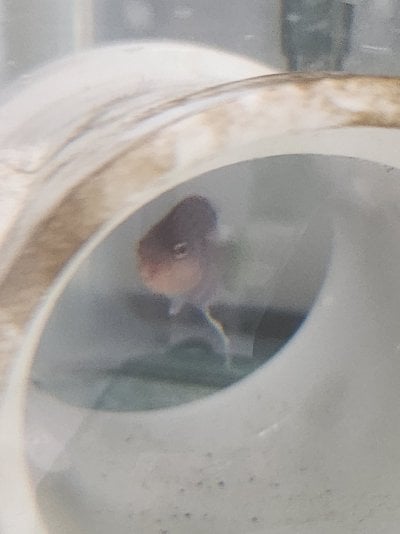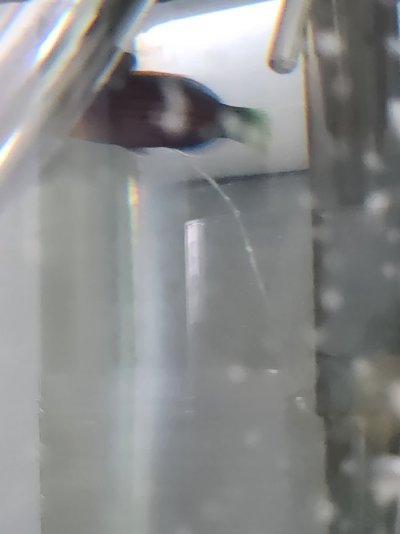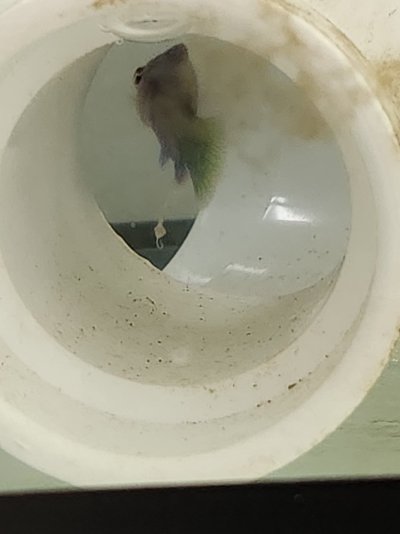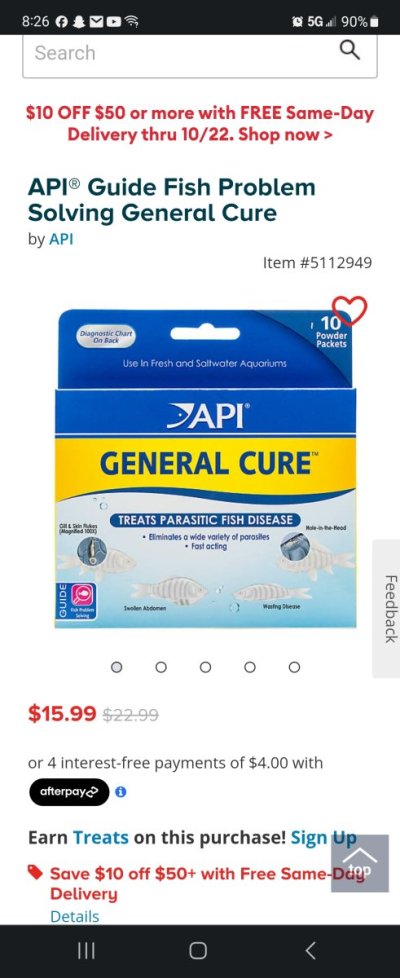Hey all,
I've got a sixline wrasse thats been in qt for 2 weeks now. Just this morning I'm seeing signs of what I believe are internal parasites? Tank started at 1.018sg and has slowly been rising due to evaporation, close to 1.021 at this point.
Can I please get confirmation on if this is some sort of internal pest, and if so what treatment is necessary? This is the only fish in the qt so I'm not too concerned about this spreading, but how contagious is this?
Thanks,



I've got a sixline wrasse thats been in qt for 2 weeks now. Just this morning I'm seeing signs of what I believe are internal parasites? Tank started at 1.018sg and has slowly been rising due to evaporation, close to 1.021 at this point.
Can I please get confirmation on if this is some sort of internal pest, and if so what treatment is necessary? This is the only fish in the qt so I'm not too concerned about this spreading, but how contagious is this?
Thanks,























